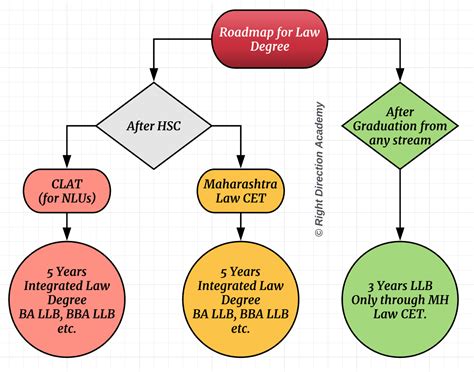Becoming a successful lawyer is a challenging yet rewarding journey that requires dedication, hard work, and strategic planning. Whether you are a hopeful law student or a current law practitioner looking to enhance your skills, the path to success in the legal field involves several essential components. In this blog post, we will delve into the crucial steps and strategies that will pave the way for a fulfilling career in law. From choosing the right law school and understanding the requirements for admission to mastering legal research, building a strong foundation in legal writing, and gaining practical experience through internships, we will explore the key elements that contribute to a successful legal career. Additionally, we will discuss the importance of developing effective courtroom skills, cultivating a professional network in the legal field, and building a specialized legal expertise. Lastly, we will outline valuable strategies for passing the bar exam and nurturing a thriving legal career. Whether you are a law student or a seasoned attorney, this blog post will provide valuable insights and guidance for achieving success in the legal profession.
Table of Contents
Choosing the right law school
Choosing the right law school is a crucial decision that can have a significant impact on your future career in the legal field. It’s important to consider various factors when making this decision, such as the school’s reputation, location, faculty, and areas of specialization.
When researching potential law schools, it’s essential to thoroughly explore their rankings and reputation in the legal community. The prestige and reputation of a law school can play a major role in opening doors to job opportunities and networking connections upon graduation.
Location is another important factor to consider when choosing a law school. Some students prefer to attend a school in a specific city or region, while others may prioritize being close to family or in a particular legal market. The geographical location of a law school can also influence its connections to local law firms and potential internship opportunities.
Additionally, it’s crucial to research the faculty and specialty programs offered by each law school. Consider the specific areas of law that interest you and whether the school offers a strong curriculum and faculty in those areas. Some law schools have renowned programs in environmental law, international law, or intellectual property, so it’s essential to find a school that aligns with your career goals.
Understanding the requirements for admission
When considering law school, it’s important to understand the requirements for admission. Admission to law school is highly competitive, so it’s crucial to be well-informed about the criteria that admissions committees look for. First and foremost, applicants must have an undergraduate degree from an accredited institution. While there is no specific major required, taking classes in English, history, political science, and philosophy can be beneficial in preparing for the rigor of law school coursework.
In addition to the undergraduate degree, most law schools require applicants to take the Law School Admission Test (LSAT), which is a standardized test that assesses reading comprehension, logical reasoning, and analytical reasoning skills. A high LSAT score can significantly impact an applicant’s chances of admission. Beyond test scores and academic background, admissions committees also consider personal statements, letters of recommendation, and extracurricular activities. It’s important for prospective students to highlight their unique experiences and demonstrate their commitment to a career in law.
Understanding the requirements for admission also involves familiarizing oneself with the specific criteria of individual law schools. Each institution may have its own set of prerequisites and expectations for prospective students. Some law schools may place greater emphasis on work experience, volunteer work, or community involvement, while others may prioritize academic achievements. Researching and understanding the admissions criteria of different law schools can help applicants tailor their application materials to meet the specific expectations of each institution.
Overall, grasping the requirements for admission to law school is a fundamental step in the journey toward a legal career. By carefully considering the academic, test score, and personal aspects of the application process, prospective students can position themselves as strong candidates for admission to the law school of their choice.
Mastering the art of legal research
Legal research is an essential skill for any lawyer or legal professional. It involves finding and analyzing legal information to support legal arguments and decisions. Mastering the art of legal research is crucial for success in the legal field.
One of the key aspects of mastering legal research is understanding the various sources of legal information. This includes primary sources such as statutes, regulations, and case law, as well as secondary sources such as legal encyclopedias, law reviews, and treatises. Being able to effectively navigate and utilize these sources is essential for conducting thorough and effective legal research.
Developing strong research skills also involves understanding how to use legal research tools and databases. There are numerous online resources available to legal professionals, such as Westlaw, LexisNexis, and Bloomberg Law, which provide access to a wealth of legal information. Learning to leverage these tools efficiently is critical for conducting comprehensive and efficient legal research.
Furthermore, mastering legal research requires honing skills in analysis and synthesis of legal information. This involves not only finding relevant legal authorities but also interpreting and applying them to specific legal issues or cases. Being able to effectively analyze and synthesize legal information is vital for developing persuasive legal arguments and making well-informed decisions.
Building a strong foundation in legal writing
Legal writing is an essential skill for any aspiring lawyer. Whether you are drafting briefs, memos, or contracts, the ability to communicate effectively through writing is crucial in the legal field. Building a strong foundation in legal writing requires a solid understanding of the principles of legal analysis, as well as the ability to convey complex legal concepts in a clear and concise manner.
One of the key components of building a strong foundation in legal writing is understanding the structure and format of legal documents. Legal writing often follows a specific set of conventions, and mastering these conventions is essential for effective communication within the legal profession.
In addition to understanding the technical aspects of legal writing, it is also important to develop strong research and analytical skills. Legal writers must be able to gather and analyze large amounts of information in order to effectively support their arguments and convey their ideas.
Finally, building a strong foundation in legal writing also involves honing your editing and proofreading skills. The ability to carefully review and revise your work is essential for producing high-quality legal documents that are free from errors and inconsistencies.
Gaining practical experience through internships
Internships are an essential part of gaining practical experience in the legal field. Whether you are still in law school or a recent graduate, securing internships can provide valuable hands-on experience that can boost your resume and give you a better understanding of how the legal system works in practice.
During your internship, you will have the opportunity to work alongside experienced lawyers and legal professionals, learning the ins and outs of the legal profession. You may be tasked with conducting legal research, drafting legal documents, or even accompanying lawyers to court hearings and client meetings.
By actively participating in internships, you can develop a deeper understanding of the legal process and gain practical skills that are difficult to obtain through academic study alone. This hands-on experience can also help you build a professional network and secure future job opportunities in the legal field.
Overall, internships are a crucial stepping stone in building a successful legal career, providing you with real-world experience and practical skills that can set you apart in a competitive job market.
Developing effective courtroom skills
Developing effective courtroom skills is a critical aspect of a successful legal career. It is essential for legal professionals to master the art of presenting a case before a judge and jury. Effective courtroom skills can make or break a case and can significantly impact the outcome for clients.
One of the key elements of developing effective courtroom skills is the ability to think on your feet. This means being able to respond to unexpected developments and adjust your strategy in real-time. Quick thinking and the ability to anticipate the opposing counsel’s arguments are crucial.
Another important aspect of effective courtroom skills is effective communication. This includes the ability to articulate your arguments clearly and persuasively, as well as the skill of active listening. Being able to effectively convey your client’s story and persuade the judge and jury is essential.
Lastly, building a strong understanding of courtroom procedures and rules is essential for developing effective courtroom skills. This includes knowledge of evidentiary rules, objections, and procedural requirements. Mastery of these aspects can greatly enhance a legal professional’s effectiveness in the courtroom.
Cultivating a professional network in the legal field
Building a strong network in the legal field is essential for anyone looking to thrive in their legal career. The connections and relationships that you build can open up doors to new opportunities, mentorship, and valuable professional development.
One of the best ways to cultivate a strong professional network is by actively participating in legal associations, forums, and events. These gatherings provide an excellent platform to meet and connect with other legal professionals, exchange ideas, and stay updated on the latest trends and developments in the field.
Another effective strategy is to reach out to established professionals in your network for mentorship and guidance. Building relationships with experienced individuals in the legal field can offer valuable insights, advice, and support as you navigate your career.
Lastly, leveraging social media platforms like LinkedIn can also be a valuable tool for expanding your network. By creating a compelling profile, engaging with legal professionals, and sharing relevant content, you can make meaningful connections and build your professional reputation in the legal community.
Strategies for passing the bar exam
Passing the bar exam is a crucial step for anyone aspiring to become a licensed attorney. It is a challenging and comprehensive exam that tests the knowledge and skills acquired through years of law school education. Therefore, it is important to have a solid plan and effective strategies in place to increase the chances of success.
One strategy for passing the bar exam is to start preparing early. It is recommended to begin studying at least three to four months before the exam date. This allows ample time to review the vast amount of material that will be covered on the exam. Additionally, creating a study schedule and sticking to it can help manage the workload and prevent last-minute cramming.
Another important strategy is to focus on practice questions and simulated exams. This hands-on approach can help identify areas of weakness and provide valuable experience in answering the type of questions that will appear on the actual exam. Furthermore, participating in a bar review course can offer structured guidance and access to practice materials.
Lastly, maintaining a healthy lifestyle and managing stress is a crucial strategy for success. Adequate sleep, regular exercise, and balanced nutrition can contribute to cognitive function and overall well-being. Additionally, finding healthy ways to cope with stress, such as meditation or relaxation techniques, can help maintain focus and mental clarity during the exam preparation process.
Building a specialized legal expertise
Building a specialized legal expertise is an essential step for any aspiring lawyer who wants to stand out in the legal field. Specializing in a particular area of law allows you to develop a deep understanding of the complexities and nuances within that specific legal domain. It also enables you to become an expert in your chosen field, making you a valuable asset to clients and firms alike.
One of the first steps in building a specialized legal expertise is identifying the area of law that interests you the most. Whether it’s environmental law, intellectual property, or corporate law, choosing a niche that aligns with your interests and strengths is crucial. Once you have identified your area of focus, you can begin to immerse yourself in that particular field, gaining knowledge and experience that will set you apart from your peers.
Another important aspect of building a specialized legal expertise is seeking out opportunities to gain practical experience in your chosen field. Whether it’s through internships, externships, or pro bono work, hands-on experience is invaluable in developing your expertise. This real-world exposure will not only deepen your understanding of the law but also allow you to build a network of contacts and mentors within your specialized area.
In addition to gaining practical experience, continuous learning and professional development are key components of building a specialized legal expertise. This may involve taking advanced courses, attending industry conferences, or obtaining specialized certifications. By staying abreast of the latest developments and trends in your chosen field, you can ensure that your expertise remains current and relevant.
Nurturing a successful legal career
Building a successful legal career takes time, dedication, and strategic planning. From choosing the right law school to gaining practical experience through internships, there are numerous steps that aspiring lawyers can take to nurture their professional growth. In order to thrive in the competitive legal field, individuals must also focus on developing effective courtroom skills and cultivating a professional network. Additionally, building a specialized legal expertise and understanding the requirements for admission to the bar are essential for long-term success.
One of the key aspects of nurturing a successful legal career is to choose the right law school. Selecting a reputable and well-respected institution can significantly impact an individual’s future opportunities. It’s important to consider factors such as faculty expertise, alumni network, and specialization options when making this crucial decision. Additionally, understanding the requirements for admission is essential in order to ensure a smooth transition into law school and eventually into the professional world.
Once in law school, aspiring lawyers must focus on mastering the art of legal research and building a strong foundation in legal writing. These skills are fundamental in the legal field and will serve as the building blocks for a successful career. Furthermore, gaining practical experience through internships provides invaluable exposure to real-world legal situations and helps individuals develop the necessary skills and knowledge to excel in their future careers.
Cultivating a professional network in the legal field is another crucial step in nurturing a successful legal career. Building strong relationships with mentors, colleagues, and potential employers can open doors to new opportunities and provide valuable guidance and support. Additionally, developing effective courtroom skills and strategies for passing the bar exam are essential for long-term success in the legal field.





